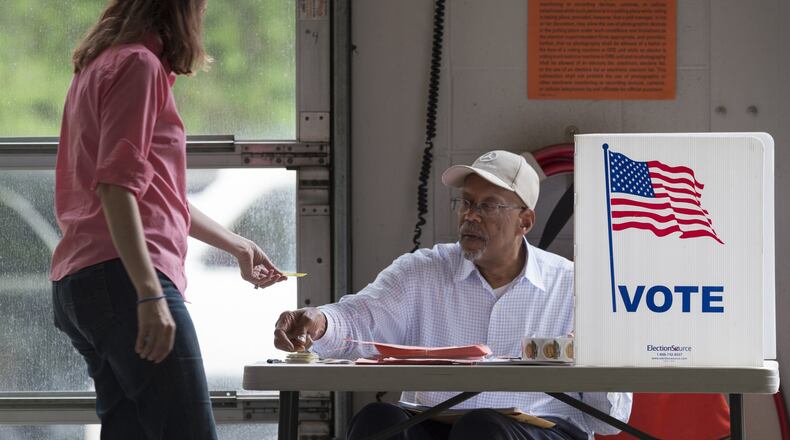Leaders from several civil rights and civic groups gathered Friday to slam federal efforts to collect voter data in Georgia, saying they would be closely monitoring the response of Secretary of State Brian Kemp.
The show of unity came as the ACLU of Georgia requested that Kemp under the state's open records law provide it with the same information he sends to both President Donald Trump's commission on election integrity, which is seeking voter roll data, as well as the U.S. Justice Department, which has requested material about how Georgia removes voters from its rolls who should no longer be eligible to vote.
Sean Young, the organization's legal director, said the group wanted to verify that the office did not send information required to be kept private under state law.
Georgia officials have said some — but not all — of the information requested by Trump's voter fraud panel is already publicly available under state law for a standard fee of $250. They have requested payment of that fee before the state will process the request. State law allows information such as voter names, addresses, race and gender, among other data points, to be included on the list.
Georgia will not share information considered private under state law such as registered voters’ driver’s license numbers and Social Security numbers.
The move by the ACLU was supported by an informal coalition of groups including the Georgia NAACP, government watchdog group Common Cause and Asian Americans Advancing Justice-Atlanta. They met on the campus of downtown’s Ebenezer Baptist Church, where the Rev. Raphael G. Warnock, who also serves as board chairman for voter advocacy group the New Georgia Project, is senior pastor.
Several of the groups, including New Georgia Project and the state NAACP, have in the past requested and received parts or all of the same public voter file, using the information either for field work or in litigation. Still, those groups said Friday that it was in the public’s interest for Kemp to deny the federal panel’s request, given no evidence of widespread voter fraud and little explanation of how the information will be used.
That brought a biting response from Kemp’s office.
“It is ridiculous that these groups are asking us not to comply with Georgia’s Open Records Act when they have been the beneficiaries of this very law,” said Kemp spokeswoman Candice Broce. “We are not in the business of denying public information to anyone on the basis of political affiliation or some other belief.”
About the Author
Keep Reading
The Latest
Featured


